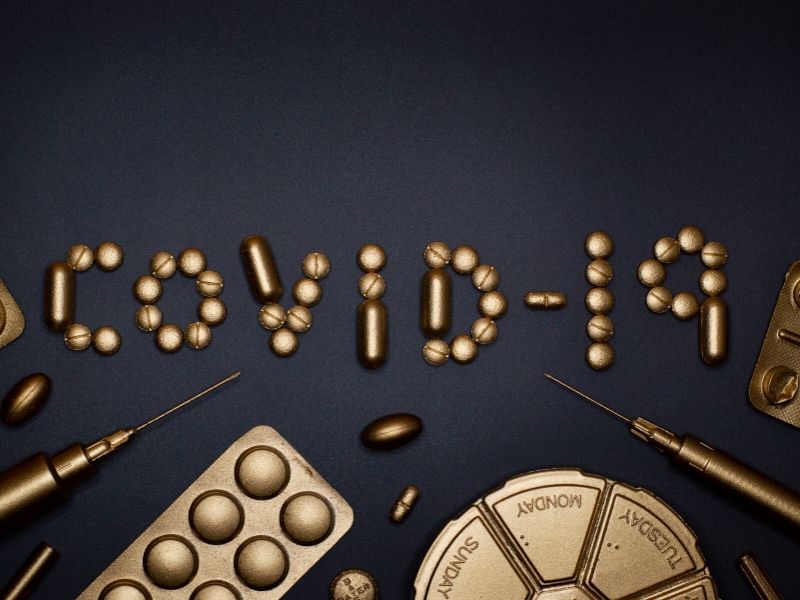
Do Vitamins Really Prevent Coronavirus?
There is a lot that remains uncertain about coronavirus including who are the most at risk, when the rapid spread will stop, and if researchers can find a vaccine. But what we do know is that vitamin C is one of many different things being experimented with when battling COVID-19 and its limited testing has shown slight promise. But does that mean that vitamins really do prevent coronavirus?
It was originally believed that the elderly and those who are immunocompromised were the most at risk of becoming severely ill with COVID-19. But the virus has also effected seemingly healthy people of all ages, including young adults with no preexisting health conditions.
Even children and babies are infected with the virus, which is why building that strong immune system is a key preventive measure even at a young age.
Studies found that consuming vital vitamins and minerals from foods and supplements can help boost the immune system. This includes vitamin C, A, E, D, and zinc to name a few.
Vitamin C and zinc are among the most popular for strengthening the immune system and in fighting illnesses like the common cold and upper respiratory infections. Some medical professionals believe that adding vitamin supplements can’t hurt during this current climate.

The vitamins and minerals needed for healthy immune functions include:
- Vitamin C
- Vitamin A
- Vitamin D
- Vitamin E
- Vitamin B6
- Vitamin B12
- Zinc
- Iron
- Selenium
- Folic acid
Just remember that it is just a precaution and not a prevention.
In short, vitamins and supplements won’t prevent coronavirus but might reduce the risk because of strengthening the immune system.
According to the Centers for Disease Control and Prevention (CDC), the best way to prevent the spread of coronavirus at home is to stay home, wash hands often with soap and water for at least 20-seconds, and clean frequently touched surfaces like kitchen counters, doorknobs, and light switches.
Still, those who are interested in that extra immune boost should take up to 75 mg of vitamin C for women or 90 mg for men. Do not take more than 3,000 mcg of vitamin A and 600 IU of vitamin D.
Women need 18 mg of iron and 8 mg of zinc, men need 8 mg and 11 mg respectively.
Adults and children can benefit from taking a multivitamin that includes a few if not all the vitamins and minerals that support immune health. There are chewable vitamin options like Gummy Cuties that are specifically fortified for immunity, as well as a daily multivitamin that contains vitamin C.

But Can It Cause More Harm?
That’s not to say that there shouldn’t be a focus on a healthy diet, exercise, and adequate sleep for immune health. This combined with the government guidelines of social distancing, sheltering in place, and proper hygiene and frequent cleaning may help to prevent coronavirus spread.
While vitamins and supplements can fill that gap in nutrients to help maintain optimal health, it’s important to know the recommended daily allowances and not exceed them. For example, taking too much vitamin C won’t make a person have a stronger immune system than someone how is getting enough from their diet.
Supplements have an upper limit. Some vitamins like vitamins A and D can lead to blood clots when taken in high doses. Too much vitamin C can cause nausea and harm and not help the immune system
With that said, hospitals using vitamin C to help patients affected with COVID-19 are giving more than the daily dietary reference value. The parents received 1,500 mg of vitamin C administered intravenously three to four times a day along with anti-malaria drugs and antibiotics.
Those given vitamin C did slightly better than those who did not. Another study sounds that vitamin C reduced the length of patients staying in the ICU by 7.8 percent.
Staying Healthy
For now, researchers continue to look at data surrounding SARS-CoV-2, the coronavirus that causes COIV-19 as well as other studies that look at coronaviruses that cause yearly respiratory infections like pneumonia. In some studies, people exposed to the coronavirus did not become infected by the same strain. In another study, symptoms where less severe when inoculated.
It would be ideal that once a person is infected with COVID-19 that they would become immune. However, there have been relapsing cases of COVID-19.
In South Korea, 91 patients who were infected with SARS-CoV-2 and then tested negative for the virus later tested positive again. So the problem isn’t just avoiding coronavirus now, it’s also preventing it from coming back again.
As a result, taking preventive measures like adding vitamins and supplements daily is key for remaining healthy.
Check out WHAT 10 EXPERTS SAY ON HOW TO BOOST YOUR IMMUNITY
Sources:
Who Is Immune to the Coronavirus?, Marc Lipsotch, The New York Times
Can Vitamins and Supplements Protect You From Coronavirus?, Danielle Zickl, Bicycling




